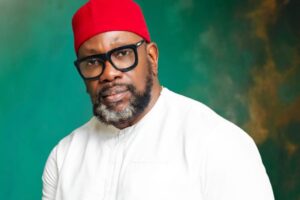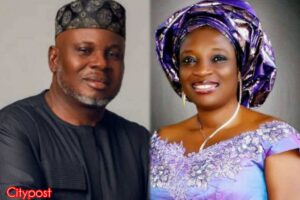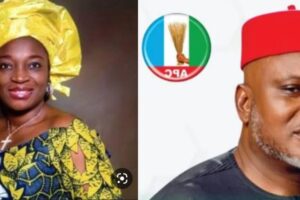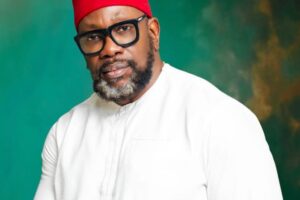
By John Alechenu, Abuja
Growing discontent among members of the opposition Peoples Democratic Party (PDP), which has led to an exodus of some of its bigwigs, especially in the South-East and South-South (areas considered its stronghold since 1999), is giving party leaders a cause for concern.
A party leader, who confided in Sunday Vanguard, said, “We can’t admit it in public but we are worried. The South-East, South-South and even the North-Central, were strongholds we could count on but this has not been the case since 2015.
“We must talk to ourselves to sincerely resolve our internal issues if we are to find redemption. The fact remains that this party was not designed to be in opposition. “
A former Director General of the Voice of Nigeria, Osita Okechukwu, expressed the view that the PDP has no one to blame but itself for its misfortunes.
He said, “As long as the PDP continues with its deliberate breach of presidential rotation convention between North and South, it would remain in opposition. They should do some introspection; the solution to their problems is within.”
Influence
The party’s influence, especially in the South-East, took a hit when then-Ebonyi State Governor, now Minister of Works, David Umahi, dumped the party to join the All Progressives Congress (APC) ahead of the 2023 polls under the guise of PDP refusing to zone the presidential ticket to the South-East.
He, like several PDP leaders from the zone, felt shortchanged that their over two decade-long loyalty had not qualified them to fly its flag at the highest level.
They had hoped that 2023 would be their chance, this didn’t happen.
Not long after this, a founding member of the party, who served as National Publicity Secretary, Chief Olisa Metuh, resigned his membership. Party leaders from this area, in private, express disappointment that the national body left former Deputy Senate President, Ike Ekweremadu, who is serving time in a United Kingdom facility, to his fate, without “even a word of solidarity.”
Matters were further complicated for the party after former Anambra Governor, Mr. Peter Obi, left to join the Labour Party (LP) where he became an instant hit among voters in the zone.
Ahead of its National Executive Committee (NEC) meeting of April 18, some of the party’s leaders cautioned against ignoring genuine calls for reforms.
An Anambra State chieftain of the party who served as Aviation Minister during the Goodluck Jonathan era, Mr. Osita Chidoka, wrote an open letter warning the party leadership.
Chairman of the party’s Board of Trustees (BoT), Sen. Adolphus Wabara, took this a step further in his remarks during the 77th BoT meeting held four hours before the NEC meeting.
He expressed reservations about the continued stay in office of the Acting National Chairman, Umar Damagum (who took office shortly after the ouster of his predecessor, Dr. Iyiorchia Ayu), and National Secretary, Senator Samuel Anyanwu.
Wabara said, “The current Acting Chairman has spent over a year in office whereas as the usual practice of the party, the region from whence the national officer hails from should have produced a viable candidate to complete the tenure of the former national officer.
“Furthermore, the contentious issue surrounding the office of the National Secretary has regrettably sown seeds of discord within our party.
“The ambiguity surrounding this position has led to confusion and internal strife, hindering our collective efforts to pursue our noble objectives.
“The solutions to these two challenges are clearly imbibed in our party’s constitution but deliberate litigations have made the application of these constitutional solutions impossible.”
Concerns ignored
His concerns were ignored as the issue did not make it into the agenda for the NEC meeting.
A former Imo State Governor who served as Deputy Speaker of the House of Representatives, Emeka Ihedioha, stated this much in his letter of resignation from the party.
Ihedioha, a known ally of former Vice President Atiku Abubakar, stated unequivocally that he was leaving the party because the leadership had deviated from the principles upon which it was built and that attempts to make them see reason had failed.
Internal wrangling among players in the South-South is also threatening the party’s hold over the region.
Cross Rivers State, which has been under PDP rule since 1999, fell to the APC in 2023 largely due to failure to adhere to its zoning principle.
Edo State has also had its share of angry party leaders resigning their membership.
A representative of the state in the PDP BoT, Hon. Charles Idahosa, resigned following his fall out with Governor Godwin Obaseki.
The party’s state congresses, scheduled for August, 2024, are also likely to come with challenges.
All eyes are on the leadership of the PDP to find solutions to these challenges if the party is to survive and return to winning ways. End




